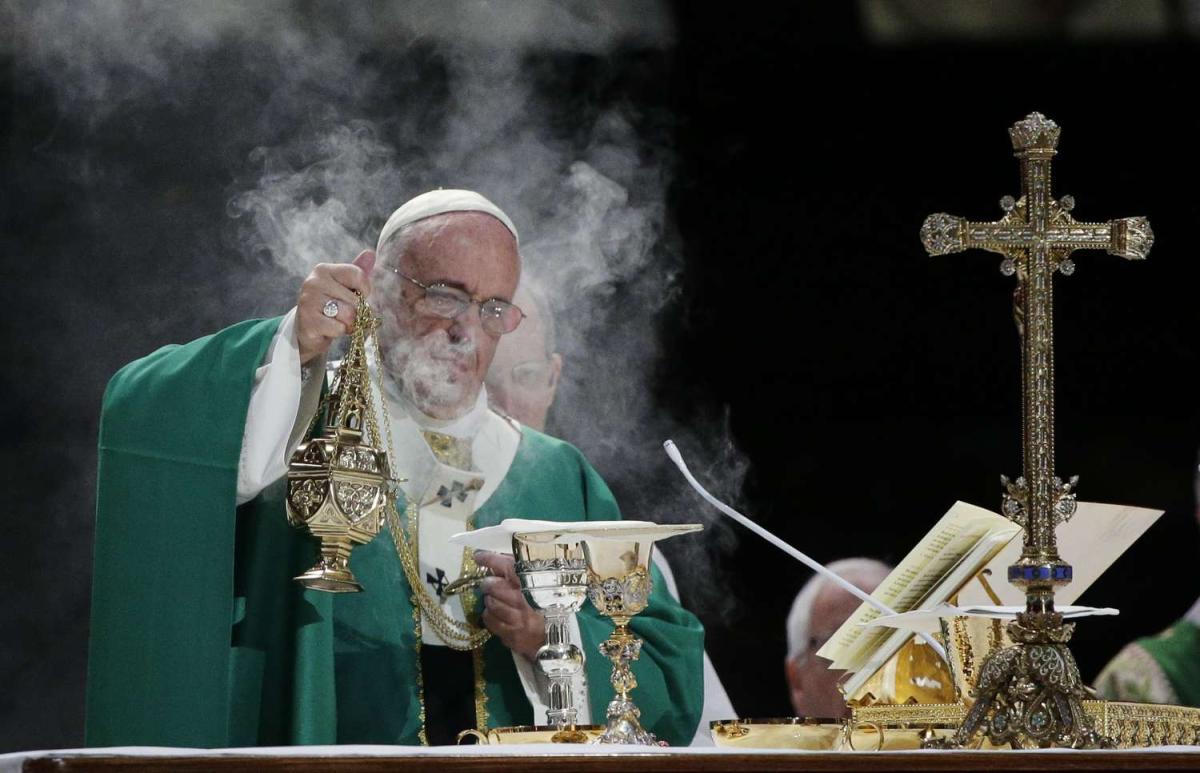
In the wake of scandals around large, informal churches and their worship juggernauts, there has been much debate about what services should look like, with many pushing for greater formality, relying on ritual and liturgy rather than organic expressions of praise. I’ve written about the worship issue before, but today I want to argue that formality (both structural and devotional) is a poor solution to the problem of performative worship, creating a maze of nooks and crannies for hidden harm. I’ll get on to liturgy and ritual in a bit, but want to start with the dangers of formal church hierarchies.
Hierarchies are fundamentally problematic
For me, hierarchies have within them a set of inbuilt flaws that will inevitably express themselves over time:
Lack of transparency
Whenever we establish a pecking order, we make it harder to hold people to account. Complaints about abuse of power have to inch their way up the chain instead of being heard in the most efficient way for the person who is suffering. The only way a multi-layered religious hierarchy can function for the wellbeing of all is if every level of that structure is populated by people of the utmost integrity, which is a statistical and moral improbability. In essence, we’re talking about cumbersome bureaucracy interfering with the natural rhythms of growth. The fewer levels of hierarchy, the better!
Abdication of thought
I sometimes get into theological discussions with a Catholic friend of mine, but as he doesn’t permit himself to question what he’s been told by someone higher up in his religious hierarchy, it never goes anywhere useful. He won’t permit ‘personal interpretation of scripture’, relying on those he thinks God has appointed to tell him how to understand the Bible. I’ve literally shown him the words of Jesus to counter a poor argument, but they carry no weight unless interpreted to him by someone else. In this case, theological hierarchy has made my friend deaf to the teachings of Jesus.
This isn’t unique to Catholicism, but Catholicism is a clear example of the pitfalls of multi-layered church hierarchies. Another person told me that, after converting to Catholicism, he was glad he didn’t have to work stuff out anymore and would accept the authority and teaching of the Pope instead. For me, this is a woeful abdication of the responsibility to think for ourselves. Hebrews 8:10-11 offers insight into what God wants each of us to understand:
This is the covenant I will establish with the people of Israel
after that time, declares the Lord.
I will put my laws in their minds
and write them on their hearts.
I will be their God,
and they will be my people.
No longer will they teach their neighbour,
or say to one another, ‘Know the Lord,’
because they will all know me,
from the least of them to the greatest.
The surrender of this freedom is perhaps the most cringeworthy consequence of formality and church hierarchies, and should be challenged at every opportunity. Believers should empower rather than disempower each other.
Discouraging openness
Once a person has been given a formal rank, they have something to lose besides their reputation if they make a poor moral choice. The higher the rank and the more generous its benefits, the harder it is to come clean.
I had a friend called John, whose father was a vicar in an Anglican church on the south coast of England. For all the world, he and his family looked like they had it all together, but behind the formality, the rituals, and the performance lay a dark secret that tormented my friend. One day, he told me the tale he’d kept hidden from almost everyone in his life – his father was involved in something church-related in the far East, and while he was out there, had conducted an affair with a local man.
To be clear, homosexuality is not the issue here; I’m fully inclusive of the LGBTQ+ community – the issue was the betrayal of his wife and family. Wracked by guilt, he gathered his family and told them the truth, but they could never speak about it to anyone else, because the father would have lost his job and the family would have been kicked out of the comfortable vicarage they lived in. From that time onwards they lived a lie, smiling and keeping up the pretence on Sundays, which had a devastating effect on my friend John, undermining his resilience and making him painfully fragile.
Now I’m not saying the Anglican church shouldn’t have vicars, but this serves as an example of the kind of secrecy that hierarchical structures incubate. The more layers in that structure, and the more people have to lose if their position is removed, the greater the temptation to hide your sins instead of live openly and with courage.
Formality hinders organic expression
Returning to the subject of worship, I’ve read many articles from Patheos writers who want to return to liturgy and dismantle the worship band entirely. Personally, I believe that informality is a far better vehicle for human expression than formality. If we add rigidity to our church services, we are making extra room for performance, even if it is performance of a religious rite rather than a musical performance. It is much easier to hide behind repetition and ceremony than it is behind organic worship.
In our happiest moments, we are likely to smile, laugh, move, embrace, and even dance. In our most intimate moments we abandon formality altogether. In our most protective moments, we gather our children in our arms, speaking sincere, soothing words.
For me, the love of God is tangible, and as his child, I respond to that love without formality or ritual. The imposition of religious rites would hinder rather than help my authentic engagement with the divine, and I am not convinced this is merely a matter of preference. For sure, contemplative elements add value to services, but not at the expense of organic expression. This is not a binary choice, and contemplation is not at odds with heartfelt singing.
I do not accept that rituals such as liturgy are a remedy for performative worship, as they introduce a form of reverence that is even more easily faked. Rather than shut down emotion, we ought to find ways to discourage performance and encourage sincerity. Nobody needs to pretend anything at all! Relationships with God and each other are the key, and healthy, organic relationships can never be hemmed in by formality.
Readers interested in my previous articles on the worship debate can find them here:
- The real problem with contemporary worship
- The Importance of emotion in worship
- The Importance of collective emotion in worship
- A racist element in the contemporary worship debate.

















